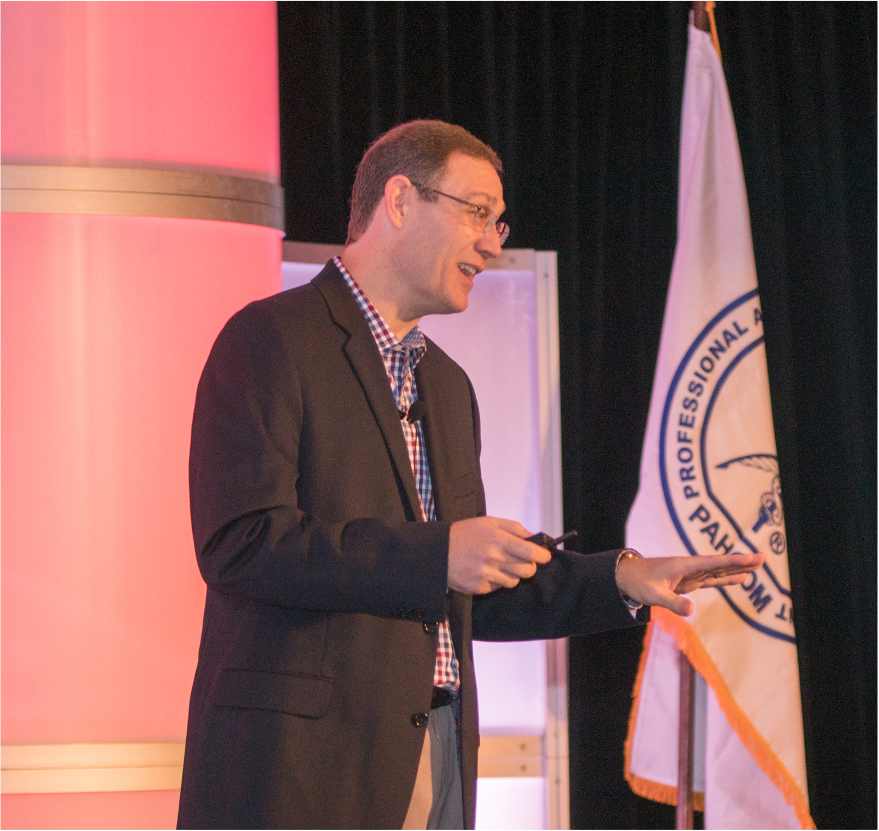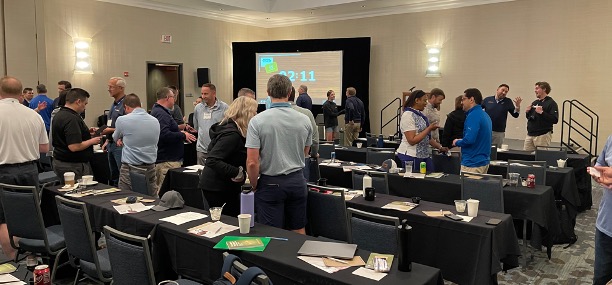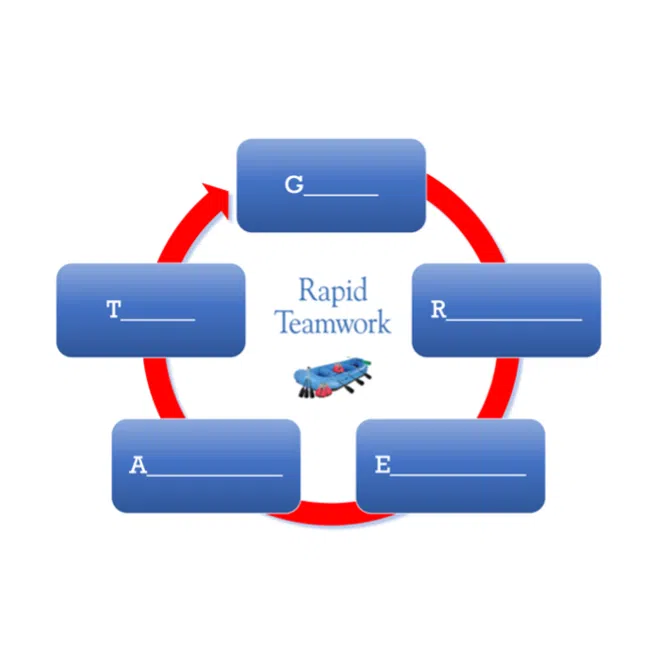High-performing organizations understand the critical role a strong workplace culture plays in employee engagement, productivity, and ultimately, profitability.
As explored in the book Rapid Teamwork: A Parable About the 5 Essential Steps to Building a More Positive and Profitable Team Culture, fostering a GREAT workplace is paramount to unlock a team’s full potential.
GREAT culture requires your focus on five areas – Goals, Relationships, Expectations, Accountability, Thanks.
But how to navigate the complexities of cultivating this ideal environment?
Enter ChatGPT, a powerful large language model that can become a leader’s secret weapon. This article dives into 20 specific prompts you can leverage with ChatGPT to address each of the five core areas outlined in Rapid Teamwork.
By implementing these prompts, leaders can spark insightful discussions, identify hidden obstacles, and ultimately build a workplace culture that fosters employee loyalty and fuels business success.
HERE ARE THE 20 HELPFUL AI PROMPTS YOU CAN USE TO BUILD A GREAT TEAM CULTURE:
Goals (4 prompts):
- Considering our current team strengths and challenges, what are 3 ambitious yet achievable goals we could set for the next quarter? How can we break these down into clear milestones for each team member?
- Imagine we have a magic button to eliminate one obstacle hindering our team’s goal achievement. What would that obstacle be, and how can we proactively address it?
- Beyond our core objectives, what stretch goals could inspire and motivate the team, fostering a sense of ownership and innovation?
- How can we create a system for regularly revisiting and adapting our team goals to ensure continued relevance and alignment with broader company objectives?

Relationships (4 prompts):
- Write a short story from the perspective of a new team member, detailing their ideal onboarding experience. What key interactions and support would foster a sense of belonging and connection?
- Imagine a team meeting specifically designed to strengthen relationships and communication. What format or activities would encourage open dialogue and collaboration?
- Analyze recent team interactions. Identify areas where we can improve communication and build trust. Suggest specific strategies to address them.
- How can we leverage technology or tools to facilitate better communication and collaboration within the team, both synchronously and asynchronously?
Expectations (4 prompts):
- Craft a clear and concise document outlining the key performance expectations for each team member role. This document should be easily understandable and measurable.
- How can we ensure everyone on the team feels comfortable discussing performance expectations openly and regularly? What tools or communication methods could facilitate this?
- Beyond technical skills and output, what are some essential non-technical skills we expect from team members to contribute to a positive and productive work environment?
- Is there a balance between individual and team accountability within our current structure? How can we optimize this balance to foster both personal growth and collective success?
Accountability (4 prompts):
- Design a system for setting clear deadlines and ownership for tasks within the team. How can we track progress and ensure timely completion without micromanaging?
- How can we create a culture of peer-to-peer accountability where team members support each other in achieving goals and meeting expectations?
- How can we encourage a growth mindset within the team? What strategies can we implement to foster learning from mistakes and view challenges as opportunities?
- What are some effective ways to hold team members accountable for their individual performance while maintaining a supportive and positive team atmosphere?
Thanks (4 prompts):
- Imagine a recognition program specifically designed to celebrate and acknowledge the diverse contributions within the team. What forms of recognition would resonate most with team members?
- Beyond formal recognition programs, how can team leaders incorporate everyday gestures of appreciation to show team members their value?
- Analyze current feedback mechanisms. Are there opportunities to improve how team members receive constructive feedback and praise to enhance motivation and performance?
- How can team leaders leverage public recognition opportunities (e.g., company meetings, client presentations) to showcase individual and team achievements?

AND WHEN USING THE PROMPTS, MAKE THEM AS RELEVANT AND ACTIONABLE AS POSSIBLE BY PROVIDING CONTEXT AND INVITING QUESTIONS…
Here are the three steps to the best results possible in using ChatGPT as a team leader:
1 – Before your prompt: Describe Your Current Situation
- Briefly outline the specific area of workplace culture you’d like to focus on (e.g., goals, relationships, accountability, etc.).
- Briefly describe the current state of that area within your team (e.g., challenges with setting clear goals, difficulty fostering open communication, etc.).
2 – Share the Question Prompt You Want ChatGPT to Answer
3 – After your prompt: Invite ChatGPT to Ask Clarifying Questions
- Here are a couple of good options:
- “What additional details or information would be helpful to generate the most relevant and actionable responses for my situation?”
- “Considering the context I’ve provided, what questions can I answer that would help you deliver more tailored and useful insights for my team?”
Here’s an example of a high quality 3-part prompt:
I’m currently leading a team of software developers, and we’re struggling with setting clear and measurable goals. There seems to be a disconnect between individual objectives and the overall project vision. (Situation)
How can we create a system for regularly revisiting and adapting our team goals to ensure continued relevance and alignment with broader company objectives? (Question)
And, considering the context I’ve provided, what questions can I answer that would help you deliver more tailored and useful insights for my team? (Clarification)

Your focus on these five key areas of a GREAT team culture will have tremendous positive impact. A strong company culture isn’t about perks and ping-pong tables. It’s about the behaviors that are allowed and repeated by your team members – and healthy behaviors are the result of fostering a shared purpose, genuine connections, clear expectations, a sense of ownership and willingness to share feedback, and meaningful recognition.
By prioritizing these five key aspects, you’ll create an environment where your team feels valued, supported, and empowered to reach their full potential. This translates directly to increased productivity, innovation, and a happier, more engaged workforce.
Consider bringing in an experienced facilitator and teamwork speaker like Sean Glaze, who can customize a program specifically for your team that will significantly boost team performance by strengthening connections, improving collaboration, and inspiring accountability.
Remember, as a leader, continuous improvement is your core responsibility. –
That is why you are reading this article!
By investing in your team’s culture, you’re ultimately investing in your own success.
– – – – –

Sean Glaze is a leadership speaker, teambuilding facilitator, and author who delivers engaging experiences that ignite your team’s performance. Sean has worked with clients like Cisco, John Deere, the CDC, and Emory University to increase collaboration, boost productivity, and build more positive and profitable workplace cultures.
As a successful basketball coach, Sean gained valuable insights on turning talent into teamwork – and now he travels around the country to share those lessons. Sean’s conference keynotes and custom team building events deliver laugh-out-loud moments and memorable take-aways that transform your people into winning teammates and more effective leaders.
Sean’s books, Rapid Teamwork, The 10 Commandments of Winning Teammates, and Staying Coachable are entertaining parables that help accelerate the growth of leaders and their teams!

Use Connection Chats to Engineer Better Collaboration Across Every Division on Your Team

Effective Leaders Build Trust and Teamwork by Focusing on Leadership Development

The Power of a Sticky Culture in Boosting Organizational Performance and Retention

Are Your Team Standards Seen as Suggestions or Recognized as Requirements?
Books and Resources for Leaders
Check other blog
Use Connection Chats to Engineer Better Collaboration Across Every Division on Your Team
Effective Leaders Build Trust and Teamwork by Focusing on Leadership Development
The Power of a Sticky Culture in Boosting Organizational Performance and Retention
Contact Sean

Connect with Sean

Tell Sean About
Your Event
Tell Sean About
Your Event
"*" indicates required fields












